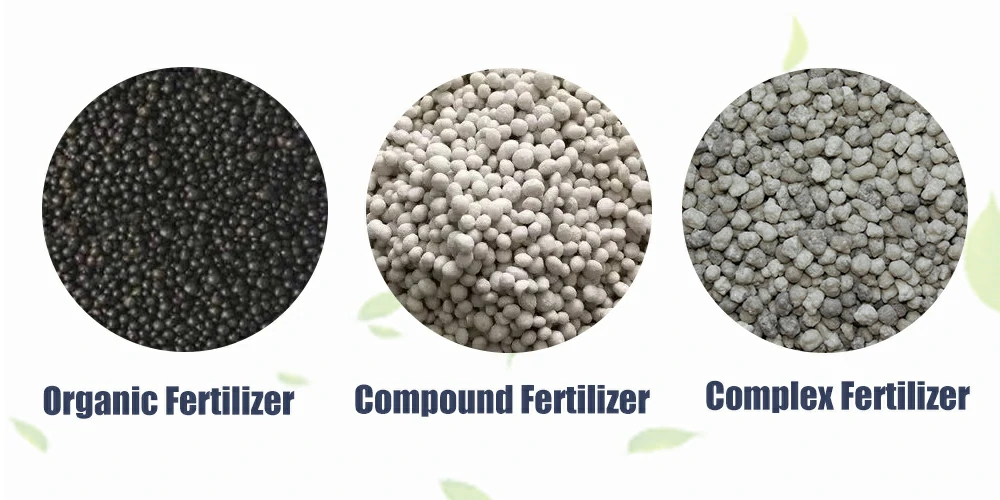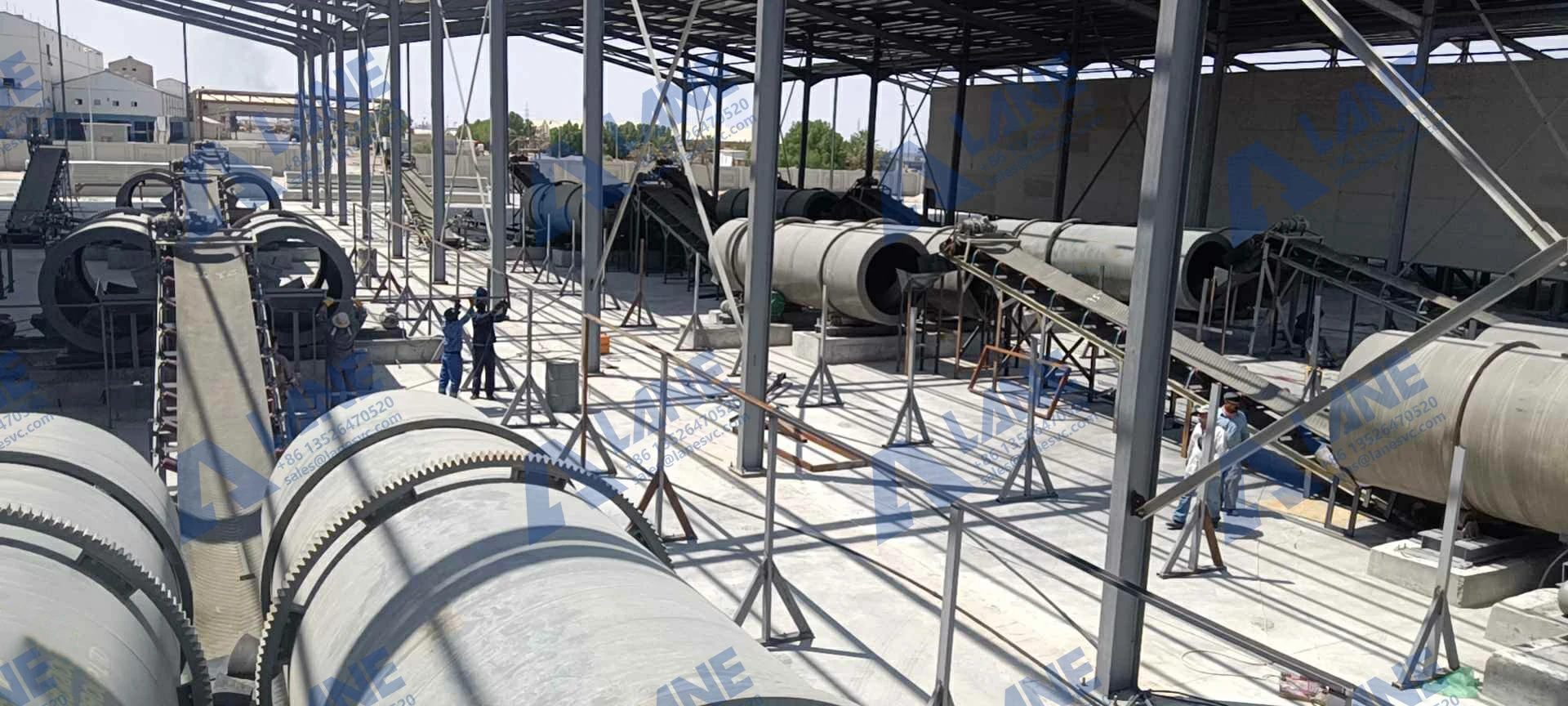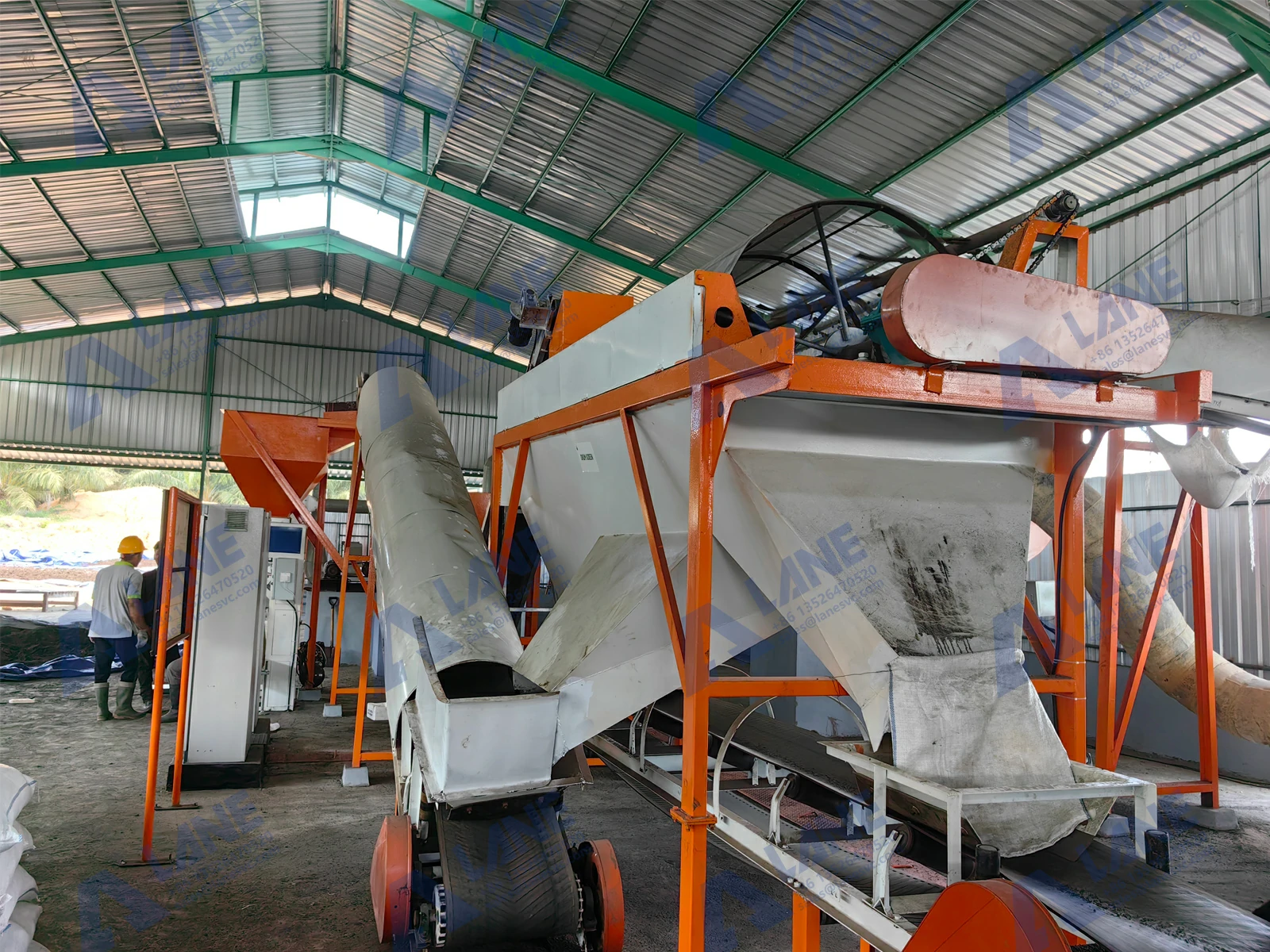author: Zero Shen
from: LANE Machinery Groups
Organic fertilizer made by fermenting and processing various animal manure, plant residues, or metabolites. Compound fertilizer refers to a fertilizer made by chemical or blending methods with at least two designated amounts of nitrogen, phosphorus, and potassium nutrients; Complex fertilizer refers to the chemical method used to produce at least two of the three nutrients, nitrogen, phosphorus, and potassium, with designated amounts.
Organic fertilizer:Improving soil quality; Protecting the environment; Increase crop output value and quality
Compound fertilizer: with high effective ingredients and a variety of nutrients; Less side components and minimal adverse effects on soil; Low production cost; Good physical properties
Complex fertilizer: High fertilizer efficiency and utilization rate; Good physical properties and convenient application; Promote soil nutrient balance; Accelerating the promotion and application of formula fertilization technology.
1.Different fertilizer production process
Organic fertilizer:It requires the processing,composting, fermenting of organic materials, and finished product processing. Key factors need to be well controlled in different stages to ensure the quality and stability of organic fertilizers.
Compound fertilizer: It is made by chemical processes, usually by first reacting or mixing the raw materials with ammonia, and then processing them to produce new particles. Each fertilizer particle contains two or more nutrients from the three major elements of nitrogen, phosphorus, and potassium. At present, spray granulation, tower granulation, disc granulation, and rotary drum granulation are commonly used process methods in the production of composite fertilizers.
Compound fertilizer: Generally produced by physical mixing method, it only adds different types of raw materials (such as urea, ammonium chloride, ammonium sulfate, potassium chloride, diammonium phosphate, etc.) in a certain proportion according to demand, and is made through physical crushing, mixing, processing, and granulation. The production process level is relatively low.
Organic fertilizer: The particles have a uniform particle size and shape, making them easy to use and eliminating the need for secondary crushing. Secondly, it has high fertilizer efficiency, which can improve soil fertility and promote plant growth. In addition, organic fertilizer particles also have high stability and are not easily volatile or lost, which can reduce fertilizer waste and environmental pollution.
Compound fertilizer: In terms of particle appearance, it has a consistent and more uniform size, better physical properties, fewer side components, and better water solubility. In terms of nutrient content of particles, compound fertilizer has a higher nutrient content, each fertilizer contains multiple nutrients, and the content and release of nutrients are more balanced. In terms of fertilizer application efficiency, it is more balanced and stable, and the utilization rate of fertilizer efficiency is higher.
Compound fertilizer particles: There are often unstable physical properties, multiple side components, and varying particle sizes on the appearance, as well as unstable quality of raw materials, uniform distribution of nutrients in individual particles, and unstable water solubility. In terms of fertilizer nutrient status and performance in the field, compound fertilizer has lower nutrient content, uneven nutrient release, unstable fertilizer efficiency, and low fertilizer utilization rate.

The compound fertilizer production line is used to produce compound fertilizers that mix multiple nutrients. It consists of equipment such as fertilizer granulator, mixer, screening machine, packaging machine, etc. It can be adjusted and expanded according to needs. The compound fertilizer production line can mix different types and proportions of fertilizer raw materials together to produce granular, easy to store, and easy to decompose compound fertilizer products.
The compound fertilizer production line has advantages such as efficiency, automation, and environmental protection. According to the needs of crops, compound fertilizers with balanced nutrition and stable quality can be produced to improve the efficiency and yield of agricultural production. The compound fertilizer production line can also achieve environmental protection and resource conservation through the treatment and recycling of waste gas and wastewater.

The organic fertilizer production line is a series of fertilizer machines that utilize fermentation and composting technology to convert organic waste into high-quality, easy to store organic fertilizer particles. Our organic fertilizer production line is fully designed, including all production processes from raw materials to finished particles.

We can adjust according to the needs of customers, meet their requirements, and strive to maximize the efficiency of the organic fertilizer production line under their specific conditions.
With the rise and development of green agriculture, the role of organic fertilizer processing equipment in the agricultural field is becoming increasingly important. Organic fertilizer processing equipment is a series of mechanical equipment specifically used to convert organic waste into organic fertilizer. It provides green and organic sources of nutrients for agriculture, while achieving the dual goals of effective resource utilization and environmental protection.
Our company is an environmentally friendly high-tech enterprise specializing in the research and production of organic and compound fertilizer equipment, and is a backbone brand of fertilizer equipment in China. The main production equipment includes granulation equipment, crushing equipment, overturning equipment, mixing equipment, organic fertilizer production line, fermentation equipment, supporting equipment, etc.
We have more than ten years of technical experience in fermentation, overturning, drying, and granulation equipment. Our fertilizer granulation production line is equipped with advanced automation control systems. Through simple settings, the production line can automatically complete the mixing, crushing, granulation, screening, packaging and other processes of raw materials. Simultaneously providing a variety of device options with different specifications and capacities, it can flexibly adapt to the needs of different customers.